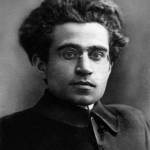In this series I have argued there are three, fundamental truths about reality we must acknowledge in order to live good lives and have a healthy society. First, there is a fundamental need for hierarchical structures given the indispensability of authority roles. Second, there is the need to recognize the intrinsic value of certain things, most centrally human persons, but also many common human activities, like enjoying friendships, playing music or reading good books.
In this last post, I argue it is necessary, both for the individual and her community, to be aware of and learn from the past. The affirmation of history and the recollection and retelling of histories, both personal and corporate, is a deeply biblical value and desperately needed for humanity to flourish. It is also a value that, like the others, has been largely dismissed in American society. The value of history has lost its appeal to a popular culture fixated on the illusion of progress and all things shiny and new.
The Bible and History
The Bible records for us, on numerous occasions, the recounting of Israel’s collective past. This recounting, or record-keeping, of the past can take the form of genealogies or name lists (Genesis 10, Numbers 3, 1 Chronicles 1-9, Nehemiah 7, 11 & 12), or the dramatic retelling of major events in the life of God’s people (Exodus 15, Joshua 24, Nehemiah 9, Acts 7).
In a reductive sense, history can be described as: the stories of people and the events that surrounded them, and in which they participated, in specific places and at discrete times. Or, as von Ranke said more succinctly, a recording of the past “wie es eigentlich gewesen ist.”
In the Bible, however, history acquires a far greater meaning and function than the mere restating of facts. For Israel to know its history, is for the people to understand not only their identity as a social group, but to recognize God’s providential, and miraculous, acts in the life of that group. In fact, it is God’s acts toward Israel that comprise the defining feature of their identity, far more than their race, ethnicity or any socio-economic success they might have had (which, historical speaking, was very little).
In his magisterial work on the Bible as narrative, Meir Sternberg emphasizes the uniqueness of the Old Testament among ancient texts as it relates to this particular feature of historiography:
As regards cultural value, temporal scope, and persuasive strategy, this art of [historical] narrative has no parallel in ancient times. Alone among Orientals and Greeks, it [the Bible] addresses a people defined in terms of their past and commanded to keep its memory alive–which ordinance, judging by the numerous retrospects performed by biblical characters within the drama itself, they [the Israelites] religiously observed.
The Poetics of Biblical Narrative, 31
This mandate to “remember” history is the glue that keeps Israel together. Many, like Herbert Butterfield, have argued that it is this very act of Israel remembering its past, at God’s command, that marks the emergence of history writing itself in the course of human events. Sternberg, quoting Butterfield, says this:
It is this cultural imperative that accounts for what a distinguished historian [Butterfield] has recently termed ‘the greatest surprise’ in the whole story of history writing. It explains how there suddenly emerged a people ‘more obsessed with history than any other nation that has ever existed….It was this historical memory that made Israel a people’; why ‘they stand alone among the people of the ancient world in having the story of their beginnings and their primitive state as clear as this in their folk-memory,’ in creating the history of a nation and even of humanity itself.”
Biblical Narrative, 31
The emphasis on history in the Old Testament is ubiquitous:
Recall how often customs are elucidated, ancient names and current sayings traced back to their origins, monuments and fiats assigned a concrete reason as well as a slot in history, persons and places and pedigrees specified beyond immediate needs, written records like the Book of Yashar or the royal annals explicitly invoked. In terms of communicative design and force, it is the novelty of the gesture toward historicity that matters.
Biblical Narrative, 31
In short, regardless of the truth values of its historical claims (an apologetical project for another essay), one thing about the Bible is abundantly clear: God’s Word impresses upon us the basic fact that history matters. Of this there is no doubt, and, without a real awareness of and appreciation for history, human culture cannot survive let alone thrive.
Two Views of History (and Historical Thinking) in the West
A healthy society will “live in the past,” as much as it will look toward the future. All of the biblical passages of Israel and the early church alluded to above, that relate to the history of God’s people, serve a vital function. On the one hand, they serve to bind people together in a shared identity. But more than that, they point to the fact that any current version of culture has a treasury of experiential knowledge and wisdom available to it, and which is meant to be applied, or re-applied, to its own contemporary life.
Unfortunately in the West today, especially America, history and the value of tradition has been neglected in favor of a radical ideology of progressivism. The devaluation of history as a source of real knowledge, and the unreflective rejection of tradition as either outdated or cruel has created a vacuum in our culture. It is, furthermore, a vacuum that cannot be filled by the distractions of technology or the pollyannish hopes of some kind of “trans-humanism.”
This progressive view of the human condition is summed up with great insight by the renowned economist, Thomas Sowell. Laying out two fundamentally opposed visions of man, the constrained and the unconstrained vision, Sowell explains how those advocates of the unconstrained view, the progressives, view the passage of time with respect to man’s knowledge of himself and his moral obligations:
Accretions of knowledge over time mean that individual and social decisions made under conditions of lesser knowledge have consequences under conditions of greater knowledge. To those with the unconstrained vision, this means that being bound by past decisions represents a loss of benefits made possible by later knowledge. Being bound by past decisions, whether in constitutional law cases or in marriage for life, is seen as costly and irrational. The unconstrained vision therefore tends toward seeking the greatest flexibility for changing decisions in the light of later information.
Excerpt From: Thomas Sowell. “A Conflict of Visions.” Apple Books.
On this progressive view of man, represented by 18th-century thinkers like William Godwin and the Marquis de Condercet, new information is always more valuable than any temporally prior information. For progressives, there really is new data that not only warrants altering prior social structures, but that actually makes prior social structures irrational (social structures like life-long marriage, for example). Not only that, but new information, as if by a law of nature, always overturns prior principles — to include moral judgements of the past, which, as Sowell points out, radically affects the nature of law.
As such, past decisions and judgments about social existence by earlier versions of a given culture are always suspicious, if not innately irrational due to the progress of time itself. This progressive understanding of history and society is diametrically opposed to the biblical view of how the past and present synthesize together to stabilize human society and help human beings thrive within the parameters of God’s creation.
The alternative vision that Sowell describes, as articulated by philosophers like Adam Smith, John Locke and, in particular, Edmund Burke, is one much closer to the Bible’s own view of history:
In a world where the individual is to be guided by the collective wisdom of his culture, in accordance with the constrained vision, culture must itself have some stability in order to serve as a guide. Without this stability, “no man could know what would be the test of honour in a nation continually varying the standard of its coin,” according to Burke.
Excerpt From: Thomas Sowell. “A Conflict of Visions.” Apple Books.
This constrained view of man, which understands human beings as finite and “constrained” by a fixed nature, does not assume that as history progresses man is moving ever closer toward a state of moral perfection. Man is not infinitely malleable as on the unconstrained view, nor is instrumental knowledge the key to human perfection. As such, Sowell points to Burke’s view on morality and principles of social governance:
In social principles, especially, Burke saw no fundamental advance to be expected from the passage of time:
‘We know that we have made no discoveries, and we think that no discoveries are to be made, in morality; nor many in the great principles of government, nor in the ideas of liberty….’
In other words, man has a limited range of options to choose from when it comes to organizing his social life on firm moral foundations. Moreover, on the constrained view and the Biblical view, most of those options, if not all of them, are to be found in the study of our own past. In other words, most of man’s great ideas have already been thought. They only need to be rearticulated and recontextualized to fit our current level of technology (which actually does change). But, in the end, there are “no new discoveries” — no real ones at least. For many this may be a rather humbling realization.
In America today, however, the past is seen through progressive eyes. They are either eyes that wear the rose-colored glasses of scientific progress, or eyes that see darkly through the lens of critical theory and social justice. On the former, history is a repository of ignorant religiosity, folksy superstition and sheer scientific ignorance. We need only forget about the unenlightened past and move into a glorious era driven by science and technology. On the latter, the past is nothing but a woeful tale of oppression, exploitation and injustice. The past is something not to learn from, but to make amends for and to regret.
There is, of course, truth in both of these. That is why many gravitate toward one or the other extreme. However, neither of them alone, nor both together represent the whole truth of history. In the main, it is because they both reject that fundamental feature of history that made Israel a people, and that has sustained the Jews (and the Church) to this day: the presence and activity of the God Who works within human affairs and Who rules over history.
Recapturing History for the Sake of the Present
Ad fontes! was the cry of the Protestant Reformation as well as that of the Renaissance. For the former, it was a return to the inspired text of the Bible. For the latter, it was a return to the great works of classical literature. In the West today, we desperately need a return to both: the Canon of Scripture and the Canon of Western Thought. We desperately need to re-immerse ourselves both the in story of Abraham as well as that of Aeneas, in the thought of both Paul and Plato. Regarding the former pair, Paul Krause writes:
Western culture is steeped in the heroic tradition of Aeneas and Abraham, fate and faith, grandeur and humility, and in pilgrimage, adventure, and journeying to a place to call home.
To re-immerse ourselves in the stories of our fathers is to bring to life the old spirit that moved mountains, split seas, won wars, and laid the foundation for Western civilization. The Aeneid, as Eliot said, is indeed “our classic.” But “our classic” gains even greater meaning when it is bathed not in the blood of the sword but in the Love that moves souls to the beautiful things that the heavens hold. Ultimately, unknown to him, it was Love that drove Aeneas to lay the seeds of our civilization.
Krause, “Heroism Regained” in Touchstone
After all, when Paul came to Athens, he did not dismiss the wisdom the Greeks had gained through general revelation and common grace. He simply filled in the blanks for them:
24 “The God who made the world and everything in it is the Lord of heaven and earth and does not live in temples built by human hands.25 And he is not served by human hands, as if he needed anything. Rather, he himself gives everyone life and breath and everything else. 26 From one man he made all the nations, that they should inhabit the whole earth; and he marked out their appointed times in history and the boundaries of their lands. 27 God did this so that they would seek him and perhaps reach out for him and find him, though he is not far from any one of us. 28 ‘For in him we live and move and have our being.’ As some of your own poets have said, ‘We are his offspring.’
Acts 17:24-28
Wisdom for our times will not come through a manic focus on the future. Moreover, thinkers like Burke and Smith, the advocates of the “constrained” view, were far more correct in their analysis of human realities than their counterparts (Rousseau, Condercet, Godwin) and their counterparts successors. We are not a perfectible creature, at least not in our own power. Nor is there anything really new under the sun, no “new discoveries” that can save us from ourselves. As Sowell points out, describing the thought of those of the “constrained” party, there are only best practices and trade-offs. But to know what those best practices and trade-offs are, we must know from where we have come.
Our culture is suffering tremendously in its inability to see the past realistically as well as holistically. We also suffer from what C.S. Lewis called “chronological snobbery,” the typical arrogance of a current version of society to think itself superior to its ancestors. In some areas of social life this is certainly true. But it should become clear to us, that in many other areas it is obviously false. In a culture where families are horribly broken, where the younger generation has no legacy of self, no family or social history to review, we must recapture a strong sense and healthy admiration for the past. We must recapture the “democracy of the dead” as Chesterton put it. For our ancestors still speak to us, and we should have ears to hear them.
We must live in the past in order to survive the present and thrive in the future. There is no entry into a promised land, both in the life of the individual or the nation, without remembering from whence we came. We must remember the biblical mandate to remember. Santayana’s aphorism that “those who fail to learn history are doomed to repeat it” is itself just a restating of the biblical command:
8 Remember this, keep it in mind,
take it to heart, you rebels.
9 Remember the former things, those of long ago;
I am God, and there is no other;
I am God, and there is none like me.
10 I make known the end from the beginning,
from ancient times, what is still to come.Isaiah 46:8-10
And rebels we are at that. And, as rebels, we dare not fail to remember, nor to forget. For with each generation we make a faulty assumption: that we possess something new, a new nature. But a new nature does not come simply through the passage of time, nor the acquisition of knowledge. This is the grand error of all progressives. A new nature only come through the power of God, and the transformation of the sinner into servant of Christ.

















